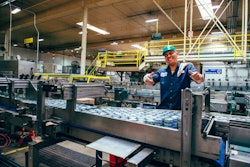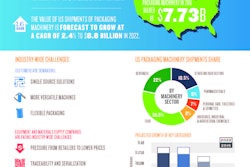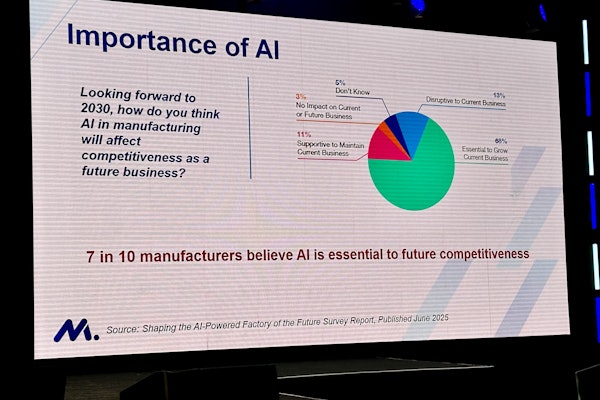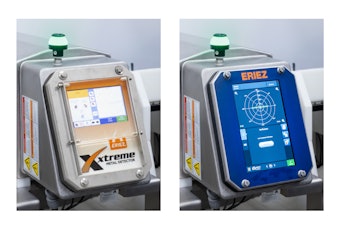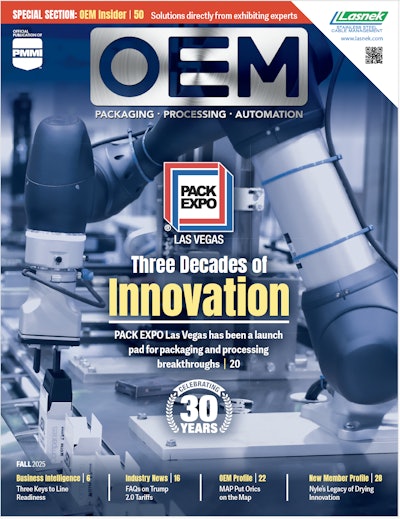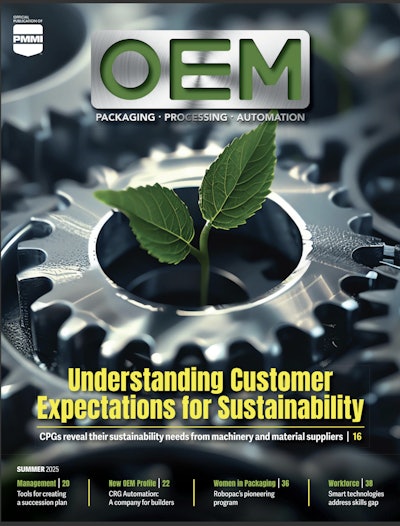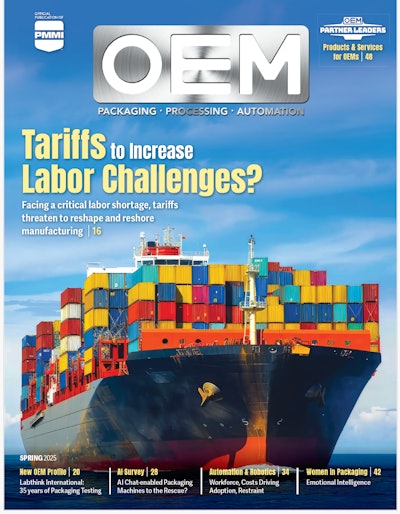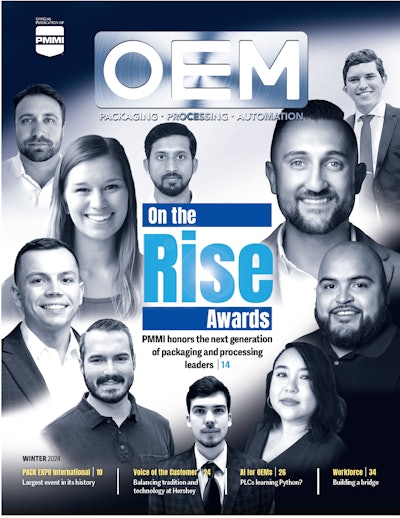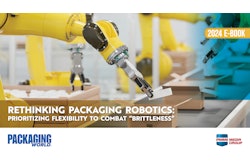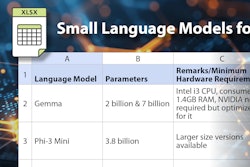By: Ty Swain, CEO, Growth Dynamics, Contributor
Sales teams at OEMs are frequently reporting that the sales landscape is changing to be more complex and competitive because there is so much access to information on the Internet. Your customers are able do so much more research beforehand than they had been before the web. Many times, those customers come to you and say, “I want a quote on this machine. Let me give you a call or visit you.” They have shorter and shorter timelines and they want answers right away.
Well, those machine builder sales teams aren’t imagining it. The Internet and technology have heavily influenced customers’ buying habits, their assumed knowledge of your products and solutions and their expectations for quicker response, delivery, service and support.
In fact, a study conducted by CSO Insights of 2,400 manufacturers (2017 World-Class Sales Practices Report) showed that, “buyers are getting better at buying faster than sellers are getting better at selling,” with quota attainment averaged across all geographies, industries and company sizes dropping from 63 percent in 2012 to 53 percent in 2016.
To be successful in the marketplace, sales organizations need to adapt to the complexities of selling today. Knowing how to train your sales people to meet this changing landscape and learning how to accommodate this need for more information faster would greatly help machine builders.
While it used to be that the sales professional was the lone holder of all the product knowledge, today’s buyers are actively using the Internet to find products or solutions, bypassing the sales force. Now, the customer believes they are armed with all they need to know about what your company provides—all the features, specifications and even pricing, to make the buying decision. They are doing this to eliminate the “sales” effort, and move faster to resolve a need. That said, this will not eliminate the sales force, it will, in fact, increase its value.
But at the same time, as technology continues to increase the accessibility of more data and information, the role of the sales professional will become more difficult and complex.
This trend will continue and the impact it will create will require the sales force to have a more effective value proposition: To focus on customers and businesses that see the value of the relationship and seek solutions, ideas and recommendations. And sales professionals will need to be more tactical and strategic, focusing their time on customers who value their expertise and partnership. The future of sales will be to offer customers products, solutions or advanced services they cannot acquire on the web because of the complexity of their need or business requirement.
Industry example
For example, take the specialty coffee market. There are thousands of vendors on the Internet who offer custom packaging products, designs or packaging systems. They all compete by price, delivery, availability, etc., for the sale, and many times, a field sales person may not be needed for this buy. However, the packaging and conveyor system needed to produce, package, seal, palletize and ship the final product for distribution will require sales professionals with the knowledge and expertise to recommend the solution that best fits the customer’s needs.
This is the role of the sales force in the future. Sales professionals will still play a pivotal role in solving complex customer needs, offering expertise, intellectual property and solutions to effectively secure new business. And their involvement can create bigger sales, more profit per sale and better-structured deals. Not to mention, customers will still want and appreciate the rapport and relationship. After all, people still want to buy from people.
Sales professionals must be equipped to perform in the areas where they bring the greatest value proposition to discerning customers who have increased expectations. They will have to have a strong grasp on the ideal customer, the target sale (solution) and a value proposition that differentiates them from other companies or the Internet. This will include high-value customers with multiple opportunities, complex needs and expectations that exceed price, where they need a sales professional with the capability to engage, collaborate and provide solutions to layers of decision-makers. These customers will expect and require a higher-level approach, bringing value to the sale and their company.
So how do top performing sales professionals differentiate themselves and adapt and navigate through the customer buying process today to accomplish success?
Sales professional value proposition
The sales professional’s challenge will be understanding enough about a customer’s industry and potential needs in order to offer a unique reason why the customer/buyer should let them in to share ideas and collaborate on solutions.
Often, sales professionals relate that the customer says they already know what they need and want, they have done all their research (on the web) and just need a quote so they are unsure about what to do or how to respond. The reality is, most customers say this because they are tired of being sold and tired of negotiating. They simply want to find a way to buy easily and quickly. The fact is, some customers can buy what they want online and simply do not want to engage a sales professional. At the end of the day, the customer will buy what they want, how they want to buy it.
On the other hand, the job of the sales person is to figure that out quickly by acknowledging the customer’s request and qualifying their needs. This type of process is disarming and allows the sales professional to ask questions and learn about what the customer seeks. Also, remember the knowledge and motivation of purchasing agents versus engineers are very different. Your questions must align with who the customer is.
You will need to focus and adapt to disarm the customer by asking questions to learn and understand how they buy, understand what they seek, understand the application—not assume the customer actually has the “knowledge,” otherwise, you could be setting the stage for problems down the road. You will need to spend time building rapport with the customer to get them to give you the approval to ask questions.
Ask These Questions to Land the Order
- I realize you know what you are seeking and we can get you a price, but can you give me a couple of minutes to learn more about what you would like to accomplish?
- You seem like a very knowledgeable buyer. What do you see in this product that supports your application (need), just curious?
- Are you aware that we can customize the machine to do this/that to support your needs?
- Were you aware that this machine has four options/versions with differing prices and specifications? One may be more cost-effective based on your needs?
- I am curious once we provide the quote, what type of support or follow-up I can provide to assure we meet your needs? And, would there be other products or services you would seek in the future where we can assist?
- For future efforts or as we progress past this order, ideally what are you looking for in a supplier. How can we best meet your needs?
- I wanted to thank you again for the time and it was nice connecting. Would it be OK for me to drop off a card with information or visit to learn more about your company and be more supportive of your needs? I could even connect you with one of our inside teams for these types of quotes in the future.
This approach is based on asking targeted questions that help the customer see or realize the value, knowledge and expertise you offer, establishing a rapport and foundation where the customer begins to see you are not trying to sell them at all, simply supporting their request so they will reach out to you in the future vs. search the web. That’s the role of a sales professional today.


